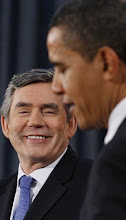Budget Spending
To protect the people against excessive governmental burdens and to promote sound fiscal and monetary policies, total outlays of the Government of the United States shall be limited. Total outlays in any fiscal year shall not increase by a percentage greater than the percentage increase in the nominal gross national product in the last calendar year ending prior to the beginning of said fiscal year.
Emergency Budget Spending
Following declaration of an emergency by the President, Congress may authorize, by a two-thirds vote of both Houses, a specified amount of emergency outlays in excess of the limit for the current fiscal year.
Debt
When, for any fiscal year, total revenues received by the Government of the United States exceed total outlays, the surplus shall be used to reduce the public debt of the United States until such debt is eliminated.
Taxation
The Congress shall have the power to lay and collect taxes on incomes of persons, from whatever sources derived, without apportionment among the several States, and without regard to any census or enumeration, provided that the same tax rate is applied to all income in excess of occupational and business expenses and a personal allowance of a fixed amount. The word "person" shall exclude corporations and other artificial persons.
Money Supply
Congress shall have the power to authorize non-interest-bearing obligations of the government in the form of currency or book entries, provided that the total dollar amount outstanding increases by no more than 5 percent per year and no less than 3 percent.
Inflation
All contracts between the U.S. government and other parties stated in dollars, and all dollar sums contained in federal laws, shall be adjusted annually to allow for the change in the general level of prices during the prior year.
International Trade
Congress shall not lay any imposts or duties on imports or exports, except what may be absolutely necessary for executing inspection laws.
Wages and Prices
Congress shall make no laws abridging the freedom of sellers of goods or labor to price their products or services.
Licenses
No State shall make or impose any laws which shall abridge the right of any citizen of the United States to follow any occupation or profession of his choice.
Free Trade
The right o the people to buy and sell legitimate goods and services at mutually acceptable terms shall not be infringed by Congress or any other of the States.
Welcome readers from the PoliticusUSA post Bill of Wrongs... Please check out the Congressional Progressive Caucus 2012 People's Budget.
skip to main |
skip to sidebar


















observe, orient, decide, act
Make Perception Great Again

Election 2016
college campus psychosis

Search PerceptionAsReality

Establishment v. Trump





It is easier to deceive a multitude than one man.
-Herodotus
-Herodotus
To hear rightly is the beginning of living rightly.
-Plutarch
-Plutarch
Gonzales Flag

Goliad Flag

Gadsden Flag

Fort Moultrie Flag



smitten

not smitten


support perceptionasreality



